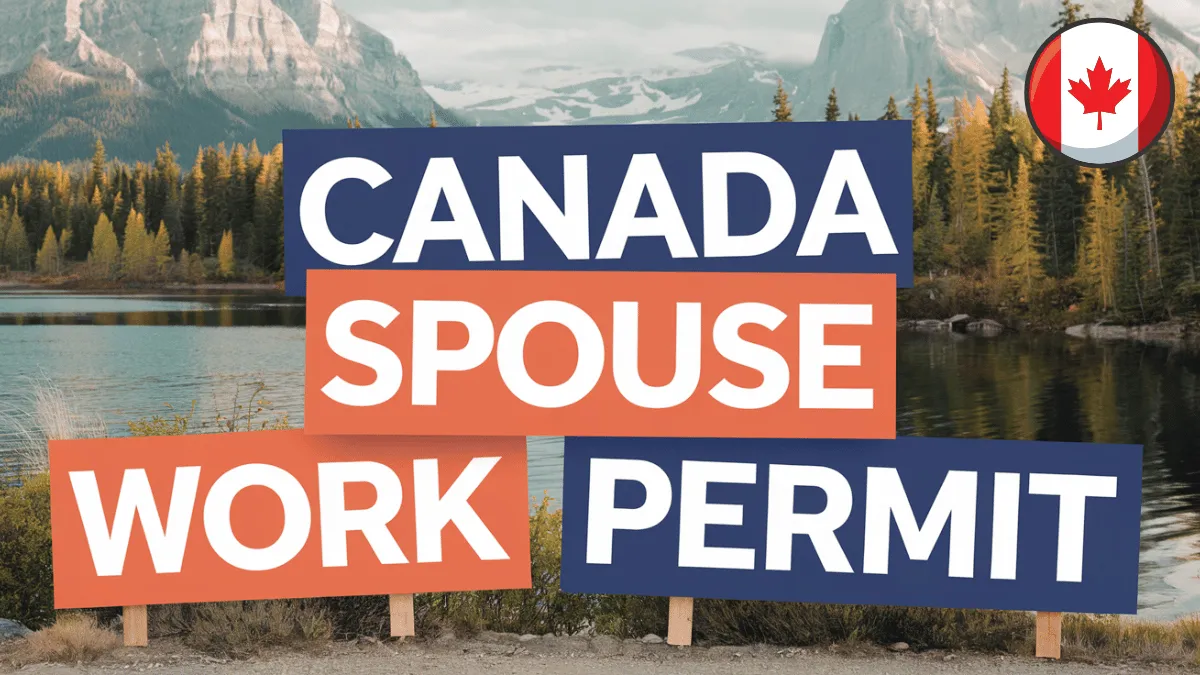
Canada’s Spousal Open Work Permit (SOWP) program, a gateway for spouses of international students and skilled workers to work in Canada, is undergoing significant changes starting December 2024. With stricter eligibility criteria and updated application requirements, understanding these adjustments is crucial for anyone planning to apply.
Who Can Apply for a Spousal Open Work Permit in 2024?
For International Students’ Spouses
The new rules limit SOWP eligibility to spouses of students enrolled in advanced academic or professional programs:
- Master’s or Doctoral Degrees: Spouses of students pursuing these programs at Designated Learning Institutions (DLIs) qualify, provided the programs last at least 16 months.
- Professional Programs: Fields like medicine, law, dentistry, and engineering are eligible.
- Undergraduate Programs: Generally excluded unless the program is in a critical labor-demand sector such as nursing or education.
These changes reflect Canada’s strategy to balance its international student policies with labor market priorities.
For Skilled Workers’ Spouses
Spouses of highly skilled workers in key industries are eligible, focusing on fields like:
- Healthcare (doctors, nurses, paramedics).
- Engineering and technology (software engineers, data scientists).
- Science and research.
Eligibility hinges on the principal applicant’s job classification under specific high-demand categories. This approach ensures alignment with Canada’s labor needs, prioritizing sectors facing shortages.
Application Process for Canada’s Spousal Work Permit
Step 1: Check Eligibility
Confirm eligibility based on your spouse’s educational or professional status. Ensure the principal applicant’s program or job falls within the designated criteria.
Step 2: Gather Necessary Documents
Prepare a comprehensive set of documents, including:
- Proof of Relationship: Marriage certificate or common-law partner evidence.
- Study or Work Proof: Study permit, letter of enrollment, work contract, or employer letter.
- Identity Documents: Passports and any additional identification required by the IRCC.
Step 3: Submit Your Application
Applications must be submitted online via the IRCC portal, ensuring all forms are completed accurately. Be ready to pay the processing fee, typically around CAD 155.
Step 4: Wait for Processing
Processing times vary based on the applicant’s location. In December 2024, the timeline ranges from 9 to 24 weeks, depending on demand. Regularly check the IRCC website for updates.
What’s Changing in 2024?
Stricter Rules for Spouses of Students
Eligibility now focuses on advanced studies and high-demand fields, excluding most undergraduate programs and spouses of students in non-critical areas.
Quota Reductions
The Canadian government aims to issue 50,000 fewer SOWPs over the next three years, part of its strategy to manage the rising number of temporary residents, which reached a record 2 million in 2024.
Streamlined Applications for Skilled Workers’ Spouses
For spouses of skilled workers, the application process remains largely the same but emphasizes critical industries facing labor shortages.
Why These Changes Matter
The revised policies are part of Canada’s broader efforts to maintain its reputation as a top destination for international talent while addressing housing shortages and labor market needs. Although these changes make the process more selective, they also emphasize the value Canada places on skilled professionals and advanced academics.
If you’re planning to apply for a spousal work permit in Canada, the stakes are higher in 2024. Careful preparation, attention to detail, and staying informed about the latest IRCC updates will be key to navigating the process successfully. Despite the stricter rules, Canada remains a land of opportunity for those who meet the criteria.
ALSO READ:


Leave a Reply